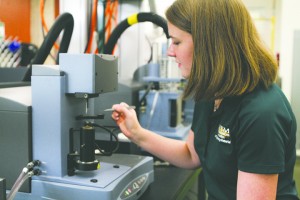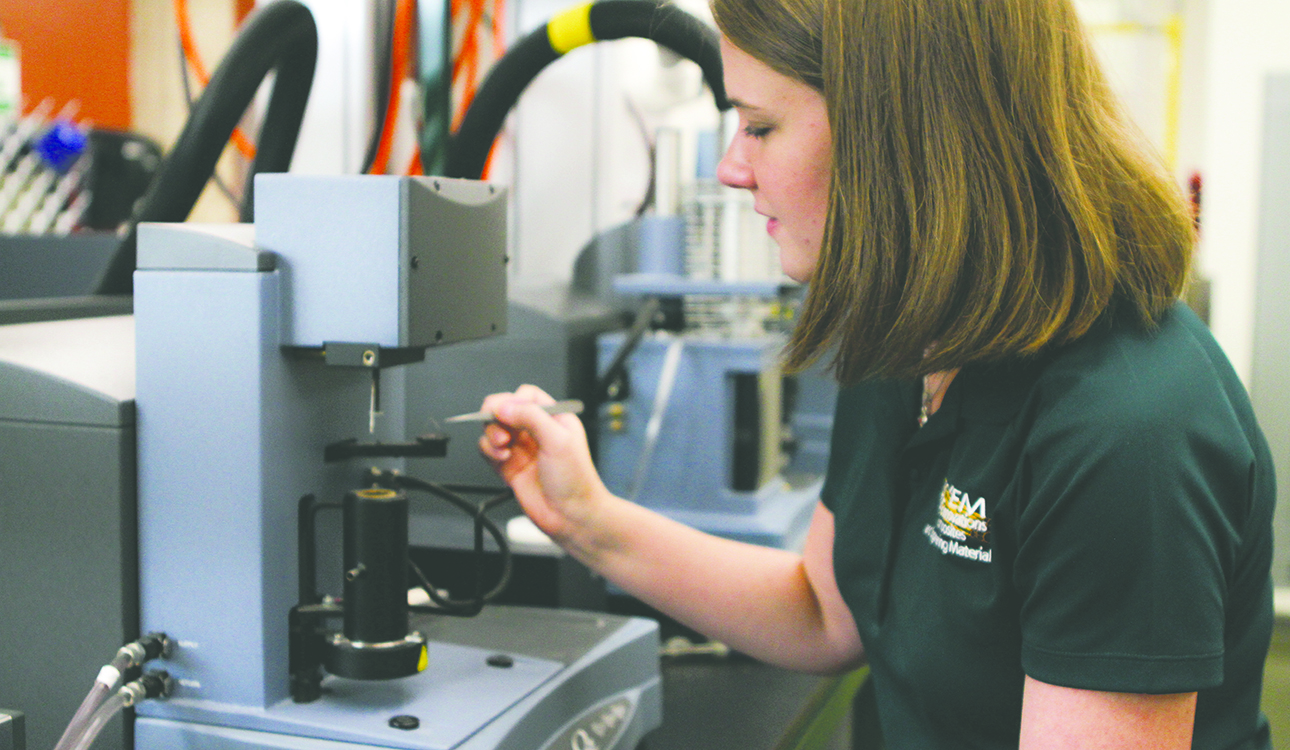
Carlye Thornton | Lariat Photo Editor
By Rebecca Flannery
Staff Writer
The Ph.D. program in mechanical engineering just grew by 100 percent.
Sarah Stair, an Arlington doctoral candidate, is the first and only person to be accepted into Baylor’s Ph.D. program for mechanical engineering, which was approved by the Baylor Board of Regents in fall 2013.
Stair graduated with a bachelor’s and master’s degree in mechanical engineering in 2012 and 2014, respectively, and said since she already built relationships with faculty and staff in those formative years, staying to earn her Ph.D. made perfect sense.
“I’ve also spent so much time on research here that I get to carry over to the Ph.D. program,” Stair said.
She said so far, her schedule looks a lot like it did when she was a master’s student, including being in classes with those working on their master’s degrees.
“These first two weeks, I’ve been going to classes, turning in my first couple of homework assignments and researching,” Stair said.
A daughter of an aerospace engineer, Stair said she has been interested in the mechanical engineering field since the moment she found her love for math and science could be combined into one career.
“It’s a lot of work but I love it,” Stair said. “Ever since I was a senior in my undergrad years and my professor, Dr. Bradley, gave me an internship heavy with research, I knew I wanted to keep at it.”
The doctoral degree requires a minimum of 78 semester hours of approved coursework and research hours as well as a dissertation on a research topic in the mechanical engineering discipline or closely related field, according to the course requirement website.
“I didn’t even think about how long getting my degrees would take until my landlord asked me how long I’d be staying in my apartment,” Stair said. “I told her, ‘oh wow, about nine.’”
Stair’s research throughout her time as a student has focused on the development of non-destructive testing techniques for carbon fiber composite materials with the use of ultrasound.
“Put simply, we’re coming up with technology through ultrasound that would be able to detect the material properties of an object,” Stair said. “It would be beneficial for quality control in products.”
She works on this in a materials characterization lab in the Baylor Research and Innovation Collaborative, taught by Dr. David Jack, an assistant professor in mechanical engineering.
There, she has been researching said technology from her days as a master’s student.
“She does absolutely exceptional work,” Jack said. “She’s an excellent student to have as the first Ph.D. candidate for the department.”
Stair had a two-month internship at Sandia National Laboratories in New Mexico this summer where she further developed her research with ultrasound. She is also a recipient of the National Science Foundation Graduate Research Fellowship through which she receives three years of financial support. According to Baylor Magazine, past recipients of the fellowship include U.S. Secretary of Energy Steven Chu, Google founder Sergey Brin and several Nobel Prize winners.





